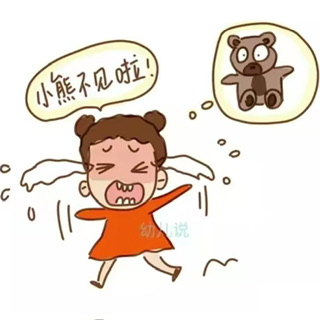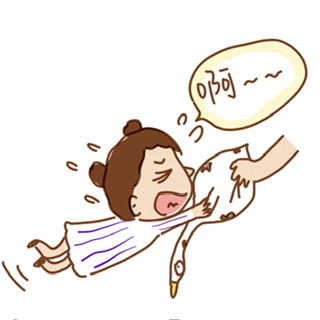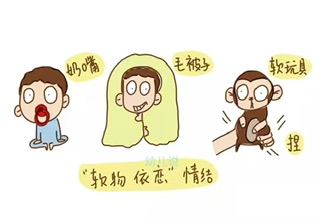Some parenting anxiety is caused by reading too many "unreliable" things?

A little girl is obsessed with
Stuffed Animals, and she is obsessed with a stuffed bear. When playing, she has to hold the teddy bear with one hand and play with the other with the other hand; when eating, the teddy bear has to be held in her arms; of course, she must hold the teddy bear when sleeping, otherwise it is difficult to fall asleep....... In addition to this, she does not allow other children to play with her teddy bear. Then one day, the bear disappeared and the little girl cried and wouldn't go to sleep. The whole family went out to look for a long time, and finally found it under the bed. The little girl can sleep well with her teddy bear in her arms. ......
This is a recent message from an anxious mom who has been told by many people that her child is "not normal". Often some mothers and fathers ask similar questions: for example, the child is very fond of small blankets, where all dragged; for example, the child is very much in love with her plush shoes, other shoes do not wear; for example, the child is very much in love with his plush pajama pants, the daytime and nighttime outing have to wear ......
For the children of these phenomena, a lot of online articles always say - favorite stuffed toys, blankets, is the child's sense of insecurity, the manifestation of psychological illness. This is an irresponsible statement that can cause anxiety for many families.
Is a child with a "soft object attachment" complex "sick" or not?

In the University of Wisconsin child psychologist Richard Passman and other research found that children attached to
Plush Toys or soft things, this "soft attachment" complex phenomenon, in the world in general: for example, the United States, the Netherlands, New Zealand and other countries, "soft attachment" complex children. "The proportion of complex children reached 3/5, 1/5 Korean children and 1/6 London children.
Among them, 1/6 of the babies within half a year old have specific obsessions, such as pacifiers; in the group of babies aged 1.5-2 years old, the proportion of obsessions rises to 2/5; by the time they are 5, 6 years old, the proportion of children's obsessions drops to 1/12. It is worth noting that most of these children who love stuffed toys or soft things do not have insecurity, and they have a not-so-bad with parents Parent-child relationship.
In fact, as early as 1953, the psychoanalyst Donaldson Winnicott called this phenomenon empathy, which is a transitory manifestation of the child's independent development. As children grow up, some of them may, in the process of becoming psychologically independent, transfer some kind of emotional attachment to objects such as blankets, soft toys, handkerchiefs, soft towels or soothers. But why something soft? We know that touching softness brings feelings of comfort and warmth, similar to the feelings brought on by a mother kissing, touching, or hugging her child. As children grow mentally, most of them eventually outgrow their "soft object attachment".
Therefore, most of the children who love to hug stuffed animals, love to drag the blanket or love to bite the pacifier, their "soft attachment" performance is normal, parents do not need to worry too much.
Be alert to these unusual behaviors:

There was once an American mom named Sarah who adopted a seemingly well-behaved little girl from an orphanage. When she picked up her little girl from the orphanage, she watched as she carried a dirty, smelly stuffed goose to the car and into her new home. When Sarah tried to bathe the little girl and took the dirty, smelly stuffed goose out of her hand, the girl resisted strongly. The little girl instantly acted like an irrational beast, grabbing Sara's arm and biting it.
This little girl's reaction was just unusual. Later, Sara learned that the dirty, smelly stuffed goose was a birthday present from the little girl's real mom, who had died in a car accident on her birthday. From then on, she thought of the stuffed goose as her "mom", behind which was a strong sense of insecurity.
So, what are the "soft object attachment" phenomena of children that parents can not be anxious about?
Children love to touch soft things, like to wear soft plush clothes, like to pinch soft toys, like to bite soft little handkerchiefs ...... but mom and dad can temporarily put it down after persuasion, and if mom and dad give the children toys or towels made of similar materials, the children can also readily accept them. The child also did not show an overwhelming emotional response when the toy or blanket needed to be cleaned or destroyed.
In addition to the children's abnormal "soft object attachment", they can easily show abnormal anxiety in other areas, such as:





